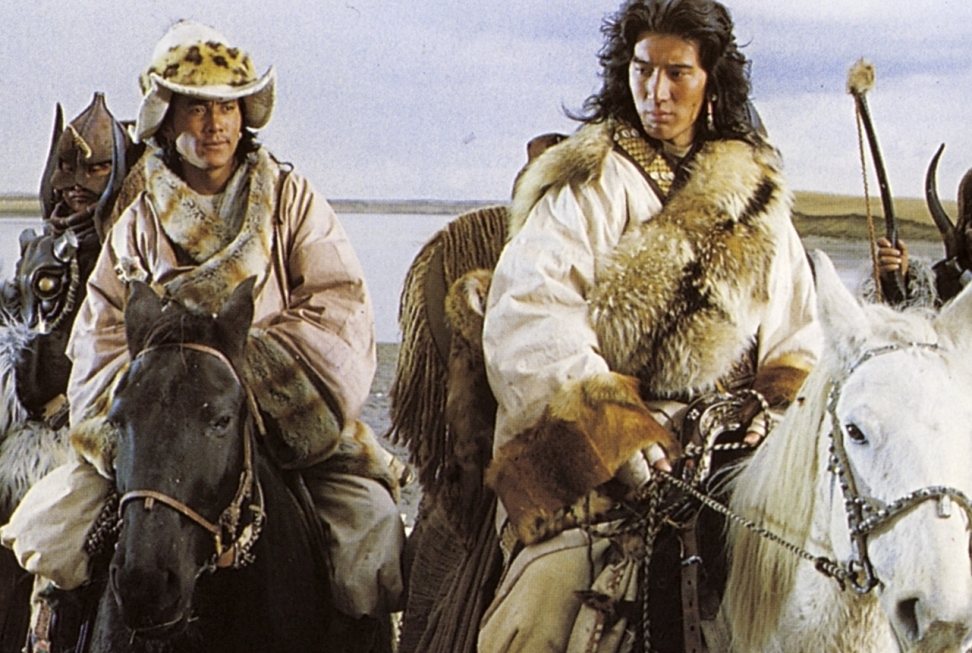
As a part of our fall classic film series, Cabaret Cinema: Consequences, the Museum is screening captivating films from Himalayan Asia and beyond. What ties these great films together is their examination of cause and effect—the intended and unforeseen consequences of the decisions that characters make.
More so than any other writer in history, William Shakespeare had a brilliant ability to build stories around ambitious characters that ultimately fall victim to unintended consequences. For the final screening of Cabaret Cinema: Consequences on December 18, we are presenting the epic film, Prince of the Himalayas, inspired by Shakespeare’s Hamlet.
Shakespeare’s works are timeless beyond compare, and updating Shakespeare’s classic have been a tradition as old as film itself. Below, check out a selection of our favorite Shakespeare adaptations. How many have you seen?
1) Romeo + Juliet (1996)

Love transcends time; so does the beloved story of Shakespeare’s infamous star-crossed lovers. Baz Luhrmann’s modern interpretation of Shakespeare’s Romeo & Juliet stays true to Shakespeare’s original themes of undying love, family feuds, and the power of hatred. Set in Verona Beach instead of Verona, Italy, Romeo and his friends sport artificially colored hair and Hawaiian shirts. Luhrmann’s version is definitely a young, refreshing take on the tragic play tailored to resonate with the MTV generation!
2) Prince of the Himalayas (2006)

“Whether ’tis nobler in the mind to suffer/The slings and arrows of outrageous fortune,/Or to take arms against a sea of troubles,/And, by opposing, end them?” —William Shakespeare, Hamlet, ACT III, Scene 1
Set in ancient Tibet under the shadow of the Himalayas, this adaptation of Shakespeare’s Hamlet is a visually ravishing historical epic with stunning scenery, richly saturated color, and lush costuming. As the prototypical tale of oedipal anxiety, or of the terrifying possibilities of taking action in the social world, this film re-invents a story we thought we knew.
3) Omkara (2006)

Set in a remote village in India, the 2006 Indian crime-drama film, Omkara, presents the harsh realities of India’s caste system with Shakespearian flavor. In the film, Omkara is the Desi reincarnation of Othello, the Moor of Venice. He is depicted as an illegitimate child of a higher caste Brahmin and a lower caste woman and he finds him self smitten with Dolly, the Desdemona of this adaptation. With an irresistibly rich plot full of jealousy, betrayal, erotic tensions, and a mixture of respect and mockery, this adaptation is stays true to the spirit of Othello.
4) Ran (1985)

The best adaptations of Shakespeare’s plays place familiar characters and plots in unfamiliar contexts (i.e. different time periods and geographical spaces). Master filmmaker Akira Kurosawa adapted Ran’s storyline from Shakespeare’s King Lear, setting his film in feudal Japan. Instead of three daughters, Hidetora (King Lear) has three sons who turn against him. Remaining faithful to King Lear‘s plot, the king’s children fight to gain control of the empire whileHidetora is blinded by ignorance. Renowned for its magnificent aesthetics, Kurosawa’s version does justice to the epic Shakespearean tragedy,elevating it to a new level.
5) The Lion King (1994)

Despite being one of the most popular movies of the past 25 years, many viewers haven’t made the connection between Disney’s Lion King and Shakespeare’s Hamlet. Shakespeare’s protagonist is replaced by Simba, a young prince in the Pride Lands whose father, Mufasa, is killed by his blood and power-thirsty uncle, Scar. Simba flees Pride Rock and faces a series of internal and external conflicts before returning to avenge his father’s death. Of course, Disney chose to make sure Simba and his friends got the “happily ever after” ending that Hamlet wasn’t fortunate enough to receive.
Learn more about the Rubin’s screening of The Prince of the Himalayas.
Add Your Thoughts
Comments are moderated, and will not appear on this site until the Rubin has approved them.

